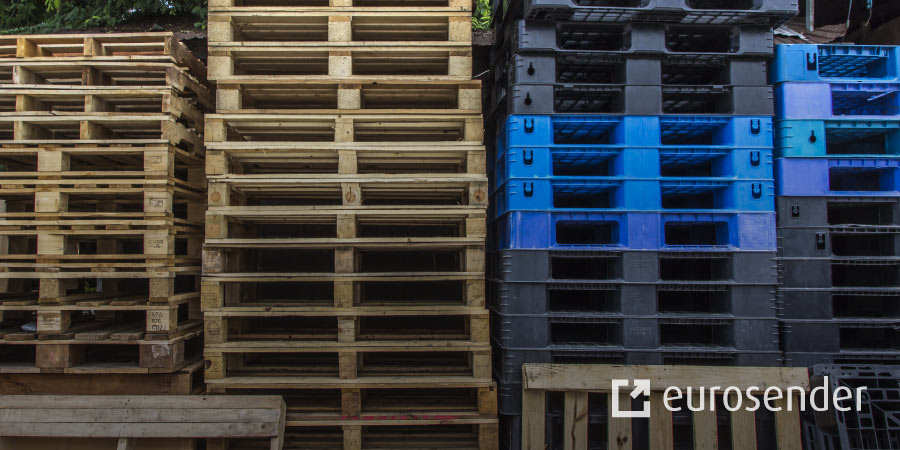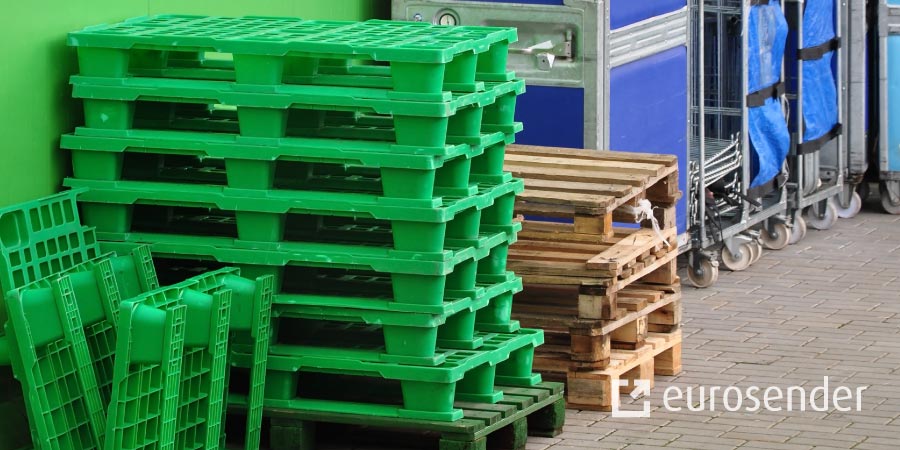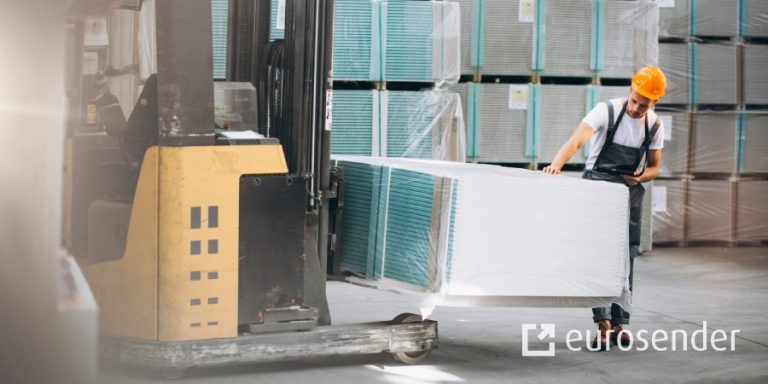Can Plastic Pallets Be Used for Export?
TL;DR
- Yes, plastic pallets can be used for export; they are often better than wood, especially for hygiene-sensitive items.
- Plastic pallets are exempt from ISPM 15 regulations, avoiding the need for heat treatment or fumigation, saving time and costs
- They are ideal for products requiring temperature control and can be customized for various industries, including those transporting liquids or chemicals.
- With a lifespan of up to 250 trips, plastic pallets are cost-effective for frequent exports, allowing for reuse and reducing shipping expenses.
Pallets are one of the most widely used packaging solutions in international freight shipping. The vast majority of pallets are made of wood, although plastic pallets are used for exporting certain items. Find out when and why you should use plastic pallets for export and international shipping.
Click to ship up to 70% cheaper
Do carriers allow export shipments packed on plastic pallets?
Yes they do, in fact, plastic pallets can even be a better choice than wood as you will read below. When shipping freight internationally with Eurosender, you can use any type of pallet as long as it is in good condition.
What are ISPM 15 requirements for export?
ISPM stands for International Standards for Phytosanitary Measures, which were developed by the IPPC (International Plant Protection Convention) to regulate the treatment of wooden packaging over 6 mm thick that is used to ship products internationally.
The ISPM 15 regulations state that all wooden pallets must be heat-treated or fumigated before use and have an internationally recognised IPPC stamp, indicating the country of origin and treatment method used, to show they comply. The purpose of this regulation is to prevent the transport and spread of disease and insects to the delivery destination.
But what if you would use plastic pallets for export and international shipping instead?
Are plastic pallets exempt from ISPM 15 for international shipping?
Unlike wooden pallets, plastic pallets are exempt from ISPM 15 for export and international shipping. This is due to the fact that plastic pallets are unable to hold pests and are, therefore, more hygienic than wooden pallets. Using plastic pallets for export and international shipping is beneficial and means that you avoid going through the ISPM inspection and certification process, saving you time and money.
Read more about:
- Plastic pallets vs wooden pallets
- Different types of shipping pallets
- Pallet markings and what they mean
When should I use plastic pallets for export?

Plastic pallets are generally used for exporting products that require a high level of hygiene or a temperature-controlled environment, such as food and pharmaceuticals. These products are not very suitable for shipping on wooden pallets because wood is more susceptible to damage and contamination. On the other hand, plastic pallets insulate well and can help keep your products at a consistent temperature during transit.
Unlike wooden pallets, plastic pallets are more customisable to suit a wider range of industries. There are various types of plastic pallets you can choose from, depending on the requirements of the goods you are exporting. For example, special spill containment pallets can be used when transporting liquids or chemicals to prevent leakage.
In this way, plastic pallets can be grouped among non-standard pallets, which offer the same advantages as standard pallets but without being limited to set sizes or dimensions.
You may also be interested in:
Why you should use plastic pallets for export shipping
Not only are plastic pallets exempt from ISPM 15 requirements for export, but they also have a lifespan of up to 250 trips due to their design and durability, often lasting more than 10 years compared to the average 5-6 trips of a wooden pallet.
Reusable plastic pallets are ideal for frequent exports to the same customer or location. In other words, you ship goods to your client, and they return the pallet to you for the next shipment. Reusing plastic pallets for regular exports keeps your shipping costs to a minimum in the long run.
Conclusion – Benefits of plastic pallets for international shipping
Consider the following benefits of plastic pallets when planning your next international shipments:
- Plastic pallets do not have to undergo heat treatment or fumigation before shipping internationally.
- When exporting products that are sensitive to temperature changes, plastic pallets are normally the best choice.
- Plastic pallets are versatile for exporting various goods and can have customised characteristics.
- For frequent exports to the same client, plastic pallets are a cost-effective and environmentally-friendly solution.
Shipping plastic pallets internationally with Eurosender
You can use plastic pallets on any of our freight services. We specialise in shipping within Europe but can also arrange exports on request.
You can follow our pallet packing guidelines to help you prepare your shipment. If you need any further information or advice, please don’t hesitate to contact us.
Interested in learning more about pallet and freight shipping? Check all our articles about pallet deliveries.
Click to ship up to 70% cheaper
About the author






